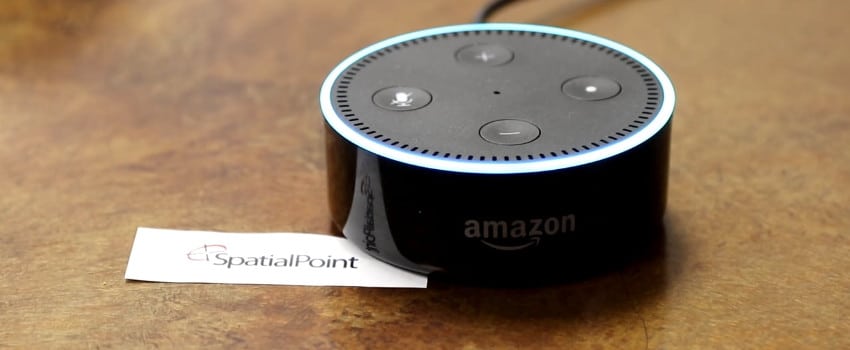When Apple announced the iPhone 4s in October 2011, all eyes were on the shiny new device that Phil Schiller, Apple’s Senior Vice President of Worldwide Product Marketing, was talking about. Few understood the history the company was making with Siri, its new automated voice control system. Siri was highlighted as one of the iPhone 4s’ strongest features, a truly unique innovation, but reviewers at the time were unable to see the bigger picture and imagine Apple’s brand new digital personal assistant ‘outside’ of the iPhone.
In the past six years however, the digital personal assistants market has evolved at a remarkably rapid pace. Siri now has a presence across the full spectrum of Apple’s devices, from iPhone and iPad, to Apple Watch and Mac. Moreover, and most importantly, Siri laid the groundwork for the development of a new product category; Microsoft’s Cortana, Amazon’s Alexa and Google Now have joined the party, forming a market with impressive prospects. Voice commands are no longer an alternative, gimmicky way to use a smartphone but a function users actively seek in their devices; recent research from GfK showed that 76 per cent of consumers in the US have used voice commands on a digital device.
Voice Vs. Touch
Voice commands have changed the way people interact with the environment around them. “[They] don’t talk to their phones in public. However, they are far more comfortable to do this at home. What starts as controlling music, lights and heating, helping with timing the cooking and listening to local news and weather reports soon leads to more interactions that can benefit brands (beyond those involved in music streaming and smart home devices) that are ahead of the curve” says MMT Digital’s Co-founder, James Cannings. “Finding shops and services in your area, opening times, simple bookings and ecommerce journeys, all these are becoming increasingly easier to achieve through voice technology.”
But this doesn’t mean that voice will come to replace touch, as Cannings argues that the two input methods can actually complement each other. This can be achieved through the proper setting, one such as this that Amazon’s Alexa offers. “The introduction of a screen to the latest Alexa device is likely to connect the world of voice, touch and other devices in a way that could prove a powerful method of closing the gap with some more complex journeys. […] To begin the user journey by voice and complete via a touch screen (or at least have visual as well as audio feedback through the journey) will unlock a huge opportunity for many brands.”
Do digital personal assistants affect the whole user journey or do they just enhance ‘discoverability’? Cannings leans towards the latter, mentioning that Cortana, Siri and Google Assistant have been around for a while, as tools to ease the search process. “With the introduction of screens to these home devices, you can imagine the use of QR codes to pick up a user journey which started on Alexa and complete that on a mobile device (anyone who has used the WhatsApp Web App will know the type of experience that is possible here). For example, to be able to find information about a flight, but to quickly transfer that journey over to a mobile, tablet or laptop device to complete the transaction and enter detailed information (such as passport information) would be a transformative step in what is currently possible on devices like Alexa and Google Home”.
Personal Assistant Search Optimisation
Brands need to understand that as users interact more with their digital personal assistants, they’ll also rely more on them in terms of finding what they’re looking for. SEO has been about how people search online so far, but businesses will soon have to understand the importance of another, similar term. Personal assistant search optimisation (PASO) is a concept they’ll have to start considering in the near future. No matter how deeply personal search assistants intervene in the user experience (from discoverability to the overall user journey), they will probably determine the consumer’s direction and brands need to be there when the machines start searching instead of people.
Companies will have to identify the digital personal assistants’ sources of information; ranking high on them is the passport for a higher reach through Alexa, Siri, Cortana and Google Now’s voice searches. Siri, for example, uses Rotten Tomatoes and MovieTickets when it comes to movies; for local services and business transactions, it uses Yelp and CitySearch, and if the user is interested in making a reservation to a restaurant, it receives information from OpenTable. PASO is more complex and challenging compared to the current SEO practices, but can prove to be more efficient, given the higher click-through rates of search results from digital personal assistants.
Digital personal assistants are constantly developing, becoming more and more effective and opening new operational streams. As Cannings asserts, “this is an area that is going to change rapidly, and there are some huge opportunities for brands to create simple user experiences that integrate these new touch points. Developing solutions that can leverage multiple voice platforms will ensure brands avoid backing the wrong horse!”



